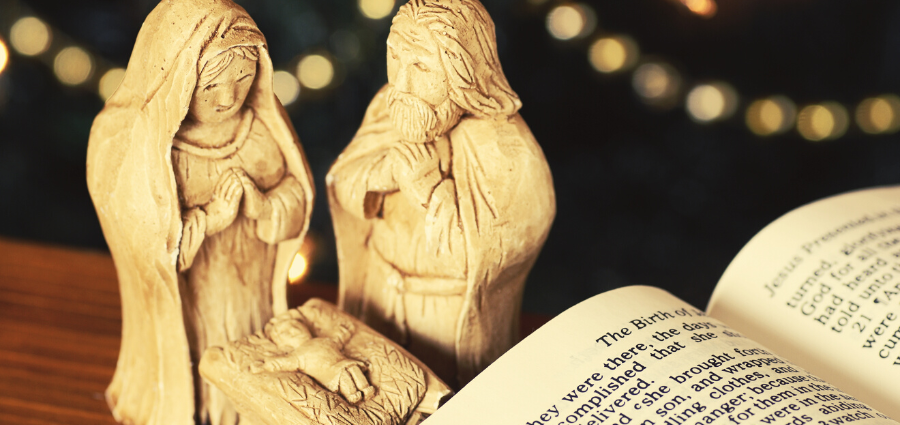
Holy lives of inspiration | Seasonal Reflections
Today’s reflection will consider an excerpt from a sermon offered by St. Bernard of Clairvaux. St. Bernard (1090-1153) was, to put it mildly, a twelfth-century force of nature. Abbot, mystic, reformer of the Benedictine order, a key figure in the emergence of the Cistercians, confidant to five popes, preacher of the Second Crusades, Doctor of the Church, and renowned for the quality of his teachings and a deep devotion to Mary.
The excerpt, known as “The Three Comings of the Lord” and taken from a series of homilies authored by St. Bernard concerning Advent and Christmas, is offered as the Second Reading on Wednesday during the first week of Advent in the Office of Readings. In his sermon, St. Bernard begins by identifying three “comings” of the Lord.
The first coming, which he describes as “visible,” refers to the Incarnation. Jesus is described as coming “in our flesh and in our weakness.” St. Bernard’s description of the second, or “final” coming, when “all flesh will see the salvation of our God” and when Christ will appear in “glory and majesty,” is also characterized as “visible” and is clearly eschatological in nature.
The third coming, however, is described as positioned between the first and second and depicted as “invisible” and “hidden.” St. Bernard speaks of it as a place where the Lord comes in “spirit and truth” and then locates it within the “elect of the Lord,” quoting Scripture about the importance of keeping God’s word. He then asks rhetorically, “Where is God’s word to be kept? Obviously in the heart.” Then, a remarkable admonition, “Keep God’s word in this way. Let it enter into your very being … Feed on goodness … Remember to eat your bread or your heart will wither away.”
When one reads and reflects on St. Bernard, or any of the great figures of the Church, one is struck by the manner in which their writings are steeped in Scripture. Bernard’s rhetoric reminds one of Mt. 4:4-11 when Jesus, in response to the first of Satan’s three temptations, proclaims, “It is written, one does not live on bread alone, but on every word that comes forth from the mouth of God.” A bit later, in his sermon, St. Bernard describes the third, or intermediate coming, as similar to “… a road on which we travel from the first coming [Christ our redemption] to the last. [Christ our life].” He describes the road as that in which we encounter Christ, our “rest and consolation.” One is reminded of Luke’s account of the two disciples’ encounter with the risen Christ on the road to Emmaus. (Lk. 24: 13-35). The road is taking them from Jerusalem, the setting of Christ’s great redemptive act, to a place where they encounter Christ in the breaking of the bread, and on the way, they are consoled and “fed” through the “breaking open” of the Scriptures.
Bishop J.C. Hedley, O.S.B., in his commentary on St. Bernard’s homilies, wrote, “No one can read St. Bernard with any profit or satisfaction who does not heartily accept him as a mystical expert in Holy Scripture.” For St. Bernard, the belief that “… the word of God is alive and active” (Heb. 4:12) or that God’s word “… will not return to me empty but will accomplish what I desire” (Is. 55:11) cannot be doubted or denied—it saturates his writings and is epitomized in the final paragraph of “The Three Comings of the Lord” where he writes, “If you keep the word of God in this way, it will also keep you.”
It may, perhaps, be instructive, as we begin our Advent journey, to reflect upon the position that Scripture holds in our life. Do we let the “busy-ness” of our lives, and of this season, get in the way of a daily encounter with Scripture or is Scripture that through which our spiritual life is nourished and fed? Is it that through which we encounter Christ, through whom we attain our rest and consolation? As we strike out on our Advent journey, may we always remember our bread!
